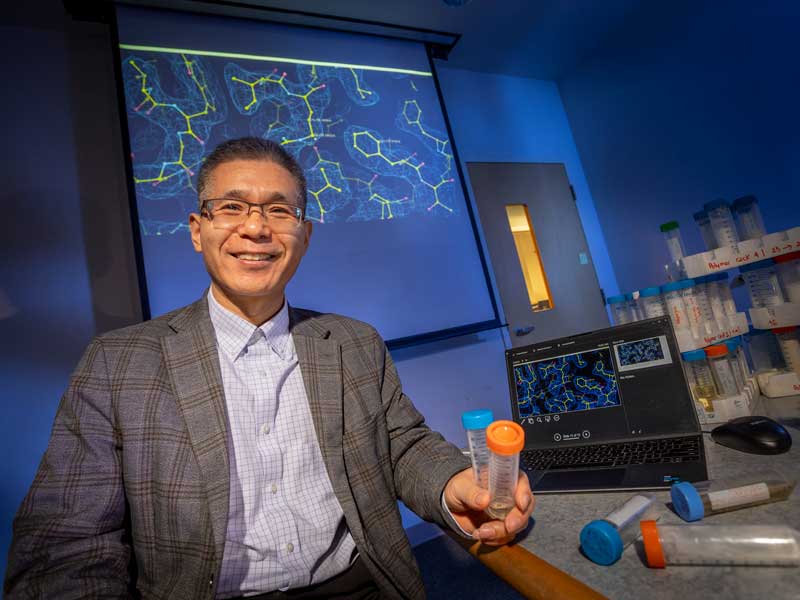Dr. Youzhong Guo pioneers a new biopharma blueprint
May 23, 2025

A commitment to membrane proteins has rendered technology that has placed Youzhong Guo, Ph.D., on the radar of some of the largest players in the biopharmaceutical industry — capping off a 2024 that included a startup formation and one very large research publication.
“This technology has huge potential for new drug discovery,” said Guo, an associate professor in the Department of Medicinal Chemistry at VCU School of Pharmacy. “With our technique, many drug targets can now be explored to develop new medicines, including small molecules and therapeutic antibodies.”
Guo’s innovative Native Cell Membrane Nanoparticles (NCMN) system offers a unique solution to one of biopharma’s biggest bottlenecks: stabilizing membrane proteins. Membrane proteins are notoriously difficult to study using traditional detergent-based methods, which often destabilize the proteins and their essential lipid interactions. The NCMN system, by contrast, uses membrane-active polymers to extract these proteins in their natural state, preserving their structure and functionality.
This breakthrough has already gained attention from major biopharma companies, including Bayer, Pfizer, Sanofi and has positioned Guo’s startup as a potential partner for other industry leaders. Additionally, this year his research was featured in a leading scientific journal, Nature Communications, for contributions to solving decades-old challenges in structural biology. In collaboration with Professor Amin Arnaout of Harvard Medical School, the study demonstrated how the NCMN system could unlock new therapeutic possibilities by stabilizing integrin allbß3, a critical membrane protein involved in blood clotting and targeted by existing FDA-approved drugs.
Read the full article about this discovery, made possible by the support of VCU TechTransfer and Ventures, and what's next for Guo and his team.